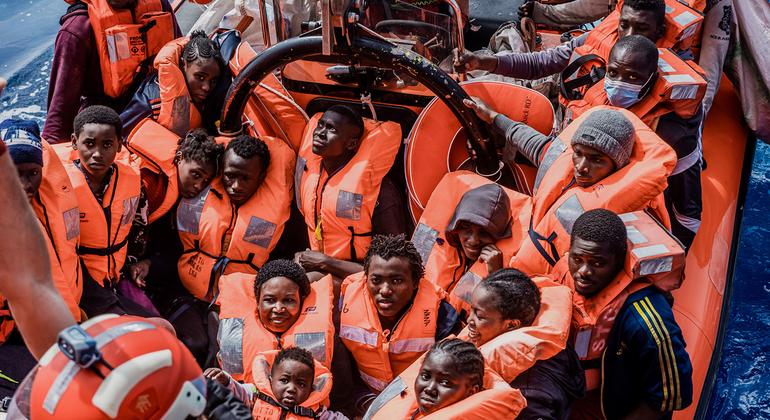The Mediterranean remains one of the most deadly routes for migrants and refugees seeking to reach the countries of the European Union. The International Organization for Migration (IOM) and the UN refugee agency (UNCHR) have both expressed grave concerns over the humanitarian crisis unfolding in this region, with a record number of migrant deaths recorded in 2023.
Pär Liljert, the director of the IOM Office to the UN, described the situation as an “intolerable and utterly solvable humanitarian crisis.” He highlighted the impact of these tragedies on survivors, families, and communities, emphasizing the need for urgent action to address the loss of life on this perilous journey. According to IOM, 8,542 migrant deaths were recorded globally in 2023, with 37 percent of these occurring in the Mediterranean.
Sivanka Dhanapala, the director of the UNHCR office in New York, echoed these sentiments, stating that the tragedies of lives lost at sea and on land routes continue unabated. He noted that UNHCR has registered over 350,000 refugees and asylum-seekers so far in 2023, with many Sudanese refugees seeking protection in North Africa. Despite a 24 percent drop in the number of refugees and migrants departing for Europe by sea from North and West Africa, concerns remain regarding access to protection and safety along these routes.
The IOM Missing Migrants Project reported that 1,450 people were accounted for as dead or missing during the crossing as of September 17, a 44 percent drop from the previous year. In Libya, over 97,000 Sudanese refugees have arrived in the past year, with hundreds more continuing to arrive daily due to the recent conflict in Sudan. The dire situation faced by refugees and migrants moving through these routes is exacerbated by a lack of access to protection, leading to increased risks of violence, trafficking, and other forms of exploitation.
Mr. Dhanapala emphasized the need for human rights safeguards to be upheld, access to protection strengthened, smugglers prosecuted, and search-and-rescue operations at sea increased. He stressed that saving lives and providing humanitarian assistance to those in need is a fundamental obligation of humanity and should not be penalized. Efforts must focus on inclusion, resettlement, and addressing the root causes of migration to ensure the safety and well-being of all individuals on the move.
According to Mr. Liljert, the main drivers of migration in the Mediterranean region are economic reasons, war and conflict, and the desire to escape personal hardships. These factors, combined with the lack of viable alternatives for safe and legal migration, contribute to the high number of deaths and tragedies witnessed along these routes. The ongoing conflicts and instability in regions such as Sudan have forced many individuals to risk their lives in search of safety and stability in Europe.
The joint report by UNHCR, IOM, and the Mixed Migration Centre highlights the major gaps in access to protection and humanitarian assistance facing refugees and migrants on these routes. The report underscores the need for urgent action to address the challenges and risks faced by individuals moving through these dangerous pathways. Efforts to address the root causes of migration, provide safe and legal alternatives for migration, and protect the rights and well-being of all individuals must be prioritized to prevent further loss of life and suffering in the Mediterranean and beyond.









